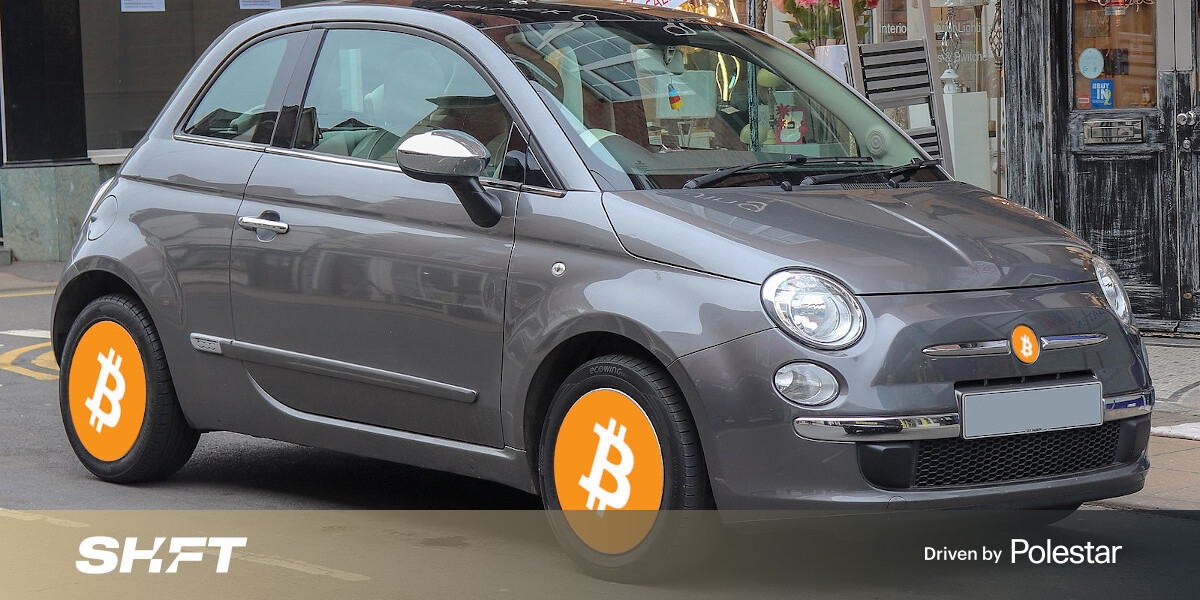
*Sigh*
I thought we’d moved on from stuff like this. It’s not 2017 anymore, but obscure and useless cryptocurrencies are still trying as they might to be A Thing. In recent weeks, you might have seen headlines touting Fiat’s new partnership with cryptocurrency KiriCoin — but please, don’t get swept up by its novelty.
According to a press release by Fiat’s owner Stellantis, KiriCoin is embedded in the ever lovable Fiat 500’s accompanying app. Careful and economical drivers will, in theory, be rewarded with KiriCoin which can then be ‘spent’ in KiriMarket, the cryptocurrency’s own marketplace. (FYI: I was going to link to the digital storefront, but the URL is flagged by my browser as a security risk, take that for what you will).
In the press release, Stellantis said drivers would be rewarded with Amazon, Apple, Netflix, and Zalando gift cards, however, none of these appear yet on the Kiri marketplace.
However, as Road Show by CNET points out, there’s virtually nothing of any value in the store right now. While that could change in future, don’t expect it to.
Cryptocurrency and blockchain startups have a habit of wooing bigger, well-known companies into getting onboard with their revolutionary technology. They make big promises, use a lot of buzzwords, and ultimately offer the bigger companies terms that don’t really come with any inherent risk.
But they also don’t come with any inherent value.
At worst, the well-known firms stand to look a bit silly, at the worst, if things don’t pan out. In this case, if KiriCoin turns out to be bunk, which it probably will do, Fiat can just remove the functionality from the app or find another way of rewarding its drivers.
In reality, if Fiat realllllly wanted to, it could develop its own database of drivers, and arbitrarily reward them with points that get them discounts on useful stuff like tires, servicing, fuel, and so on.
Instead, partnering with KiriCoin gives Stellantis a fast route to being able to say that it’s the “first automotive manufacturer to reward its customers for sustainable driving behavior.” On the surface, that sounds like quite an honorable pursuit.
There’s not really any reason for Fiat to partner with a company like Kiri Technologies, other than to get the platform up and running quickly, and make brash, semi-substantiated claims on a press release.
What’s more, you’re also going to have to drive a lot to earn anything worth spending.
The announcement says that one kilometer of city driving is equal to about one KiriCoin, which itself is worth around two euro cents. So, to earn €150 you will have to complete 10,000 km of city driving in a year.
In a weird round about sort of way, this is actually incentivizing people to drive in cities, which is hardly the most sustainable choice in the first place. By driving less each year, you could quite easily save €150 in fuel. So I’m not sure the logic here entirely checks out.
Other similar schemes, run in the West Midlands of England are instead rewarding drivers for not using their cars, which sounds like a far more sustainable option.
Whilst it appears to be the first to get it off the ground, Stellantis isn’t the first carmaker to entertain a cryptocurrency rewards program.
Jaguar Land Rover has supposedly been in talks with IOTA to use the blockchain startup’s tech to reward drivers for sharing data about their journeys. That was a couple of years ago, and yet we still have nothing, and it’s not clear where those conversations lead.
Back in 2019, a new app launched to Product Hunt, called Lympo Squat. It used your phone camera to track your movement as you do squats, it would then reward you in Lym tokens for every successful squat.
I did the math, and you’d have to do 5,000 squats to earn $8. As with Fiat and KiriCoin, you have to do a lot for it to be worthwhile at all. And if you really care about sustainability and the environment, you shouldn’t need some poxy cryptocurrency to get you driving sensibly. If you do, you deserve to get nothing for your efforts.
At the moment, Fiat’s KiriCoin partnership is only available in 13 European countries, but I wouldn’t worry if you feel like you’re missing out — you’re really not.
Do EVs excite your electrons? Do ebikes get your wheels spinning? Do self-driving cars get you all charged up?
Then you need the weekly SHIFT newsletter in your life. Click here to sign up.
Published March 23, 2021 — 09:47 UTC
